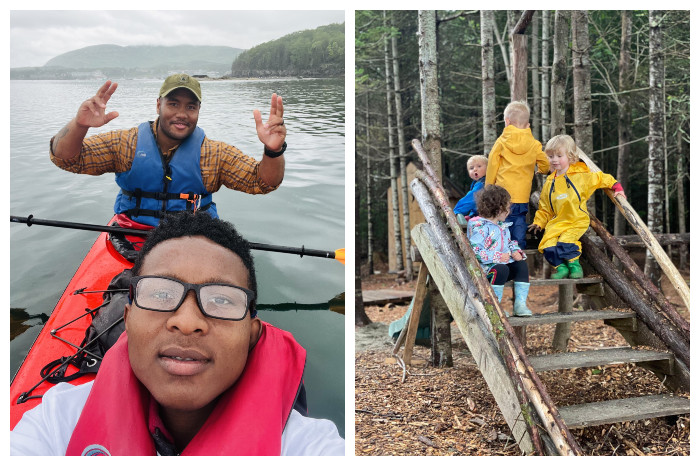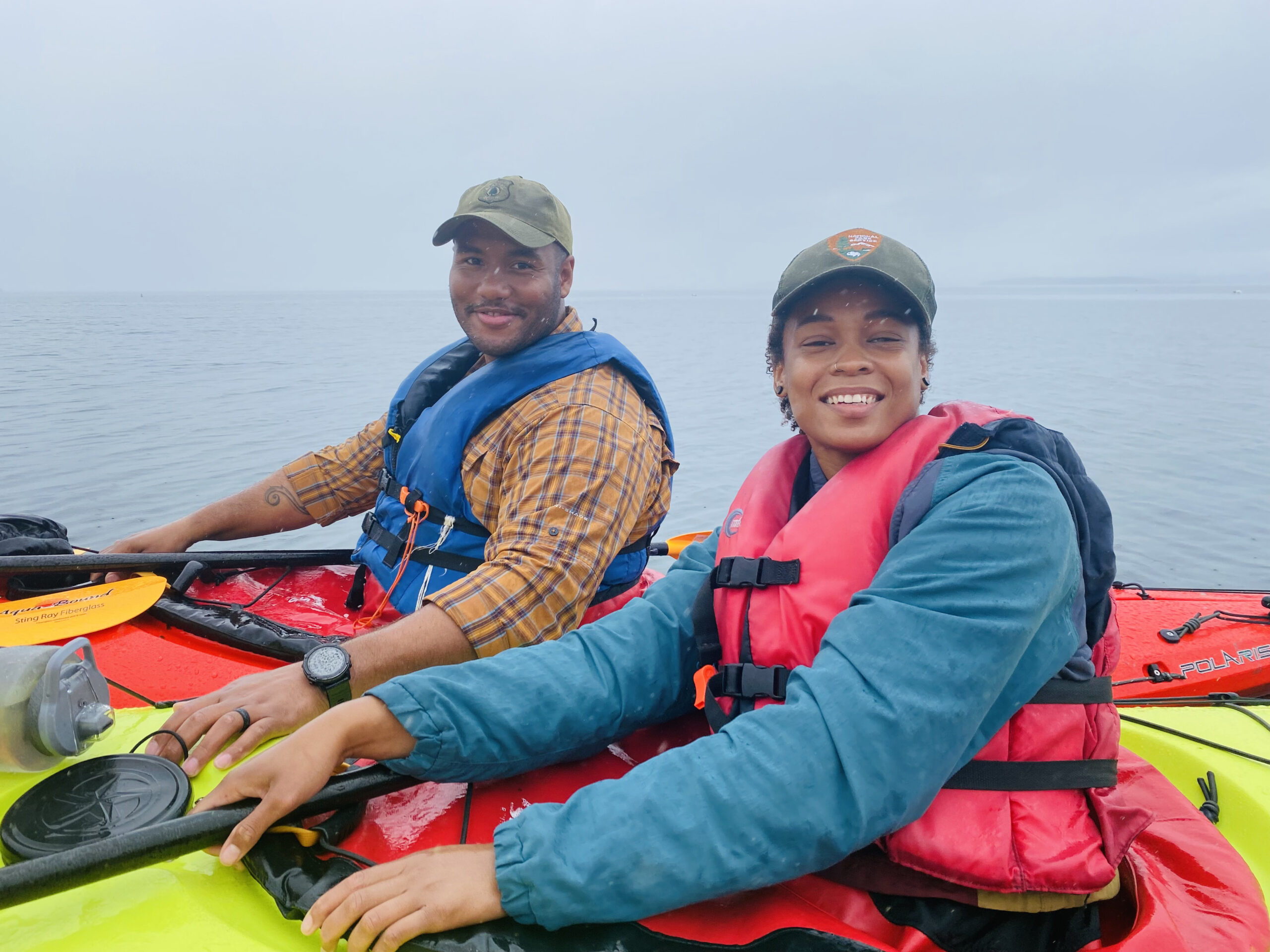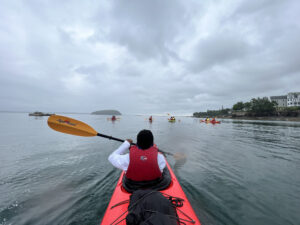“Acadia For All” Task Force Builds on a Decade of DEI Work
A more welcoming Acadia is a more resilient and enjoyable Acadia, for all.
July 28th, 2023
A more welcoming Acadia is a more resilient and enjoyable Acadia, for all.
July 28th, 2023
BY PAIGE STEELE
Since its formation in 1986, Friends of Acadia has partnered with Acadia National Park to connect and engage surrounding communities through initiatives such as funding school field trips, restoring the carriage roads, helping fund the Island Explorer bus service, and more.
These efforts increased access to Acadia for a wide audience, but more work is needed to welcome under-represented communities to Acadia-and all our national parks.
Friends of Acadia’s diversity, equity, and inclusion (DEI) efforts began in earnest nearly a decade ago. We started by looking internally and asking why so few students from Maine were applying for our seasonal jobs and realized that, to attract more diverse applicants, we needed to reduce barriers to employment.
We increased seasonal staff pay rates, provided uniforms and field gear, which can be quite costly, and began collaborating with the park, our members, and partners to develop seasonal workforce housing solutions. This work is ongoing, but we’re proud that our efforts have started to increase both socioeconomic and cultural diversity among Friends of Acadia’s seasonal staff.
Friends of Acadia also supported the park’s efforts to build more equity in park education by providing Outdoor Classroom Grants to schools. These grants create outdoor educational spaces on school campuses so students can learn about Acadia right at their school, allowing time in nature without the need for bus transport to the park. These spaces were particularly important during the COVID pandemic, and Friends of Acadia continues to award about five grants per year as outdoor learning becomes the new standard.
For the past seven years, our Urban & Diverse Youth Grants have assisted new groups visiting Acadia who participate in ranger-led programs, study climate science, improve trails through volunteer service projects, and enjoy the beauty of the park through hiking, biking, boating, and more. In 2022, we provided grants to four youth groups, and we’ve already reached that same number of groups this year.

Left: Registered Maine Guide Kareem A. Dieng sea kayaks on Frenchman Bay with Jodelin Dulauria (front). Photo Courtesy Jodelin Dulauria. Right: The Children’s Garden in Hancock, ME, is part of the Outdoor Classroom program. (Paige Steele/FOA)
We have also collaborated with the park to expand the number of National Park Service Academy interns working in Acadia. The Academy is a branch of AmeriCorps that brings more diversity to front-line staff in national parks and opens a path into conservation careers.
With our support, Acadia will have five NPS Academy interns this year working in several divisions of the park, including invasive plant management, trails and carriage roads, and the Acadia Youth Conservation Corps.

Registered Maine Guide Kareem A. Dieng rafts up to Deja Manson, Acadia National Park laborer, during a kayak trip on Frenchman Bay with Groundwork Bridgeport. (Paige Steele/Friends of Acadia)
Making Acadia more accessible and welcoming to visitors with mobility or neurodiverse challenges is also a corevalue. That’s why Friends of Acadia funded a comprehensive accessibility study in Acadia National Park in 2021- 22. The study’s recommendations are being implemented, along with a new accessible Cadillac East West Trail that is in the design phase.
In addition, a wheelchair accessible carriage was donated by the Diana Davis Spencer Foundation for use by reservation at Wildwood Stables on the famous carriage roads. Friends of Acadia has also funded the purchase of a trailer for the new MDI Wheelers organization that is providing carriage road rides on adapted electric-assist tricycles for people unable to bike themselves.
Thankfully, these endeavors are championed by Friends of Acadia board members who participate in an ‘Acadia for All’ Task Force with several Friends of Acadia and Acadia National Park staff members. Together, we are continuing our educational journey to gain a better understanding of what a welcoming Acadia National Park means.
Several board members and staff have participated in the ‘First Light Learning Journey,’ a collaborative between Maine leaders, conservation organizations, and Wabanaki Nation communities. The discussions in this series and the relationships established are a good step toward realization of Secretary of the Interior Deb Haaland’s directive to co-steward national parks with local tribes.

A youth participant from Groundwork Bridgeport in Connecticut Kayaks in Frenchman Bay. Photo Courtesy Paige Steele/FOA
Another notable endeavor is a virtual listening tour with other park partners, such as the Grand Canyon Conservancy, to hear about DEi challenges and successes in their parks. Looking ahead, Friends of Acadia will receive guidance from DEi consultants in the fall, guest speakers will assist staff and board with continued learning, programs will continue to be co-created with the communities they serve, and best practices will be shared amongst national parks and their partners.
We’re excited to share the progress that we have made and our commitment and dedication to this ongoing DEi journey. Change can be uncomfortable, but this culture shift is making space for wonderful new relationships and an exchange of ideas, sparking innovative ways to protect and connect with our shared national treasure, Acadia National Park.
A more welcoming Acadia is a more resilient and enjoyable Acadia, for all.